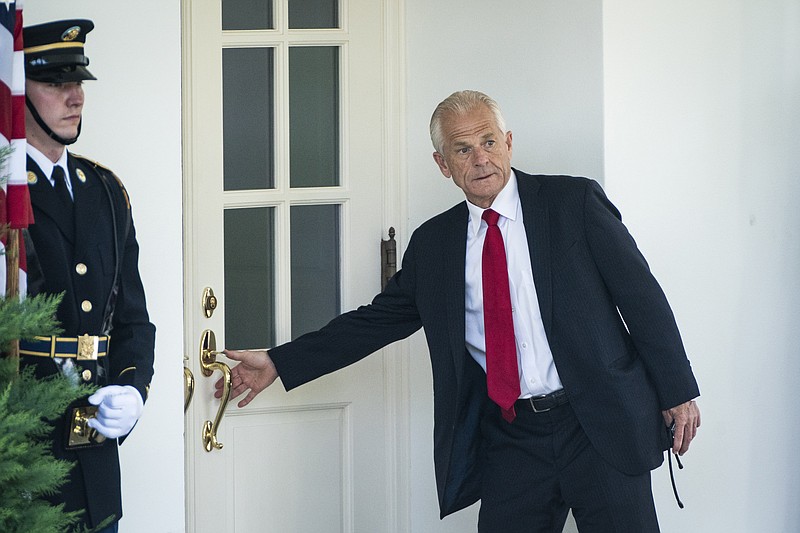WASHINGTON -- White House trade adviser Peter Navarro is leading a Trump administration effort to demand the Food and Drug Administration reverse course and grant a second emergency authorization for the antimalarial drug hydroxychloroquine to treat covid-19, the disease caused by the coronavirus.
Navarro, armed with a controversial new study that he says shows the drug's effectiveness, is being cheered on by President Donald Trump, who has long touted the drug as a "game changer" and even used it himself as a possible preventive measure. Trump praised the study on Twitter this week, urging the FDA to "Act Now." The campaign also has been promoted by Rudolph Giuliani, the president's lawyer, and Laura Ingraham's show on Fox News.
But Navarro, an economist known more for his approach to trade issues and China policy than his medical credentials, faces serious challenges as he denounces what he calls "media-induced hydroxy hysteria."
Scientists have widely criticized the new study, by Detroit's Henry Ford Health System, as flawed. In addition, just weeks ago the FDA revoked its emergency authorization for hydroxychloroquine after major studies found the medication wasn't effective for covid-19.
[CORONAVIRUS: Click here for our complete coverage » arkansasonline.com/coronavirus]
"A reversal [on hydroxychloroquine] would be widely seen as bending to the political will of the White House and the hit to Dr. Hahn's credibility would be profound," said Steven Joffe, a medical ethicist at the University of Pennsylvania, referring to FDA Commissioner Stephen Hahn.
The FDA's response to this pressure will be closely watched, not only because the White House has already been criticized for pushing to influence the CDC's guidelines for the pandemic, but also because the agency will take the lead in approving a vaccine for the coronavirus, a decision that could potentially affect millions.
Health experts say it is important for the agency, which was criticized for its initial decision to OK hydroxychloroquine in March, to guard its credibility as it prepares to make these landmark decisions for a public sometimes skeptical of vaccines.
The tug-of-war on hydroxychloroquine also is seen by many as a test for Hahn. While sympathetic about his difficult position, some health experts say he appears too willing at times to placate Trump. Just last Sunday, Hahn declined repeated opportunities on two television shows to dispute Trump's statement that 99 percent of covid-19 cases are harmless. On CNN, he said he didn't want to "get into who is right and who is wrong."
Hahn did not want to get into a distracting debate about the president's statement, according to an administration official who spoke on condition of anonymity to discuss internal deliberations.
Navarro says his goal is simple: At a time when the virus is surging in many parts of the country, there are 60 million doses of hydroxychloroquine in the Strategic National Stockpile that can't be distributed unless the FDA issues an emergency authorization. He asserted that the Henry Ford study shows the drug works when used as an early treatment and said the FDA should take action "within days, not weeks or months" so he could send the shipments.
Trump has told aides that he sees the Detroit study as "vindication" of his position and wants the drug sent to hospitals across the country, in the words of another senior administration official who spoke on condition of anonymity to discuss internal deliberations. A number of Trump political aides, along with the Republican National Committee and campaign officials, have also promoted the Detroit study.
Navarro said that if the Detroit data is backed up by subsequent studies, "there is blood on the media's hands" for sowing doubts about the drug.
Information for this article was contributed by Ariana Eunjung Cha of The Washington Post.

